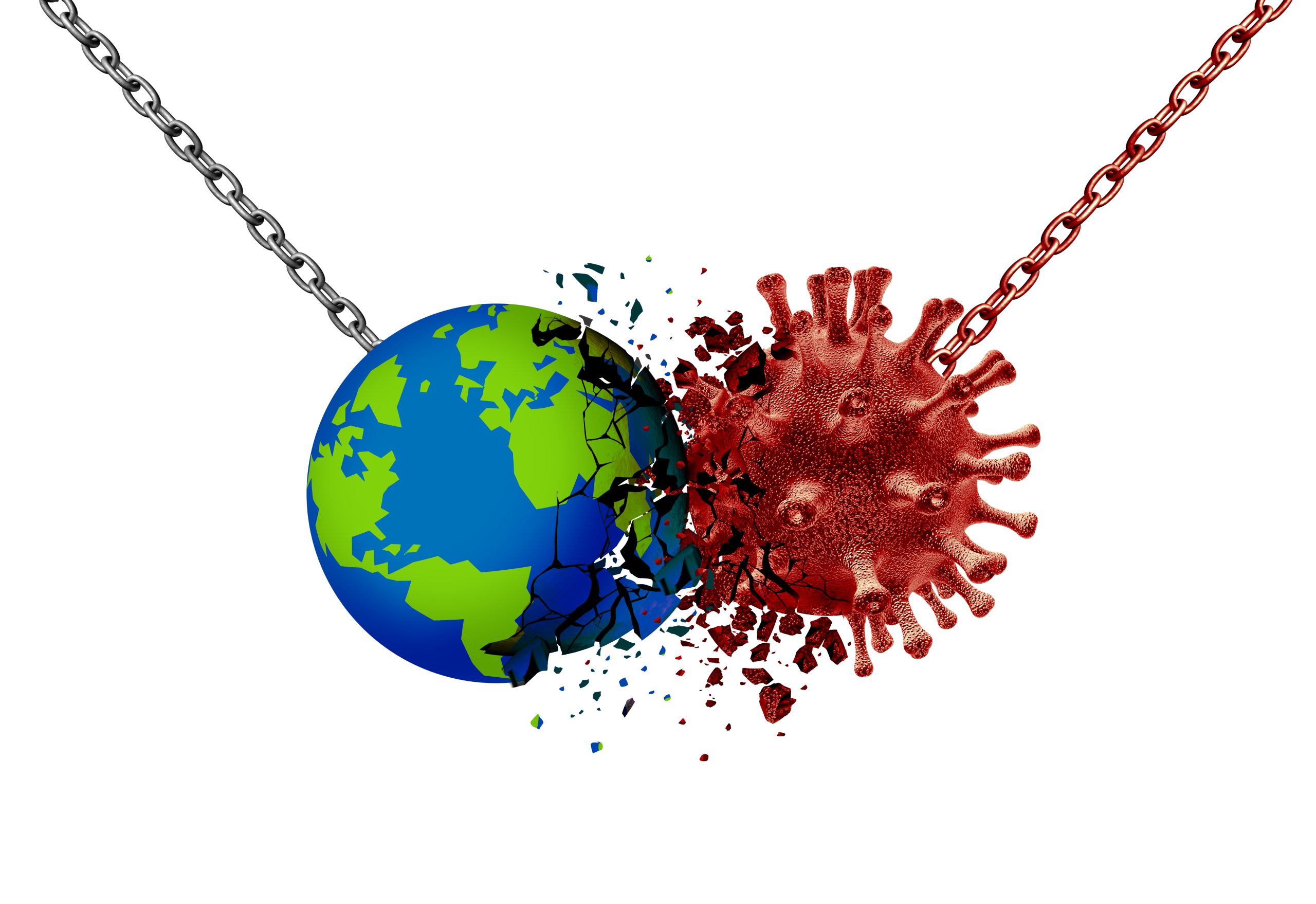“The Accord should commit the Parties to waive relevant intellectual property rights in all national and multilateral agreements once a Public Health Emergency of International Concern is declared by the WHO.” – People’s Vaccine Alliance Comments
 The People’s Vaccine Alliance released comments this week on a draft of a pandemic accord currently being considered during the fourth meeting of the Intergovernmental Negotiating Body (INB) at the World Health Organization (WHO). The organization criticized the draft for lacking strong language that would obligate WHO member parties to share knowledge and intellectual property during a pandemic.
The People’s Vaccine Alliance released comments this week on a draft of a pandemic accord currently being considered during the fourth meeting of the Intergovernmental Negotiating Body (INB) at the World Health Organization (WHO). The organization criticized the draft for lacking strong language that would obligate WHO member parties to share knowledge and intellectual property during a pandemic.
The Zero Draft is being discussed at the INB meeting from February 27-March 3, and the organization will later decide if it will be the basis of negotiation for the pandemic prevention accord. After the fourth meeting, the INB will hold another meeting from April 3-6, and it will report on developments around the accord in May, at the 76th World Health Assembly.
The People’s Vaccine Alliance saw some positives in the Zero Draft; however, the group asked for more concrete language on the issue of intellectual property rights, among other topics.
Piotr Kolczy?ski, EU Health Policy & Advocacy Advisor to Oxfam and the People’s Vaccine Alliance, said at the fourth INB meeting, “global common goods must take precedence over private commercial interests. The Pandemic Accord should therefore include a commitment by member states to waive intellectual property rules on medical technologies relevant to such pathogens [with pandemic potential].”
How IP Rights Fit in a Pandemic
The group asked the WHO to recognize two points related to IP rights in the Zero Draft and eventual pandemic accord.
First, the WHO should acknowledge “that the right to health takes priority over intellectual property rights in the event of their conflict.”
Secondly and more concretely, the group asked the WHO to recognize a provision from the UN treaty body called the Committee on Economic, Social and Cultural Rights (ESCR) that states “intellectual property rights are not human rights, but a social product and have a social function. Thus, States parties have a duty to prevent intellectual property and patent law regimes from undermining the enjoyment of economic, social and cultural rights.”
The People’s Vaccine Alliance also had specific requests related to various articles in the Zero Draft related to intellectual property rights.
In some cases, the group agrees with the intention behind the articles but asked for stronger language to achieve certain objectives. For example, the group cited Article 7.3(c) and Article 9.2 which contain provisions that attach conditions to receiving public funding that would increase knowledge sharing and IP licensing. Here, the civil society organization asked the WHO to change the language from “encouraging” to “obligating” companies to share certain information and rights if they receive public funding.
Waiving IP Rights
Similarly, the People’s Vaccine Alliance took issue with the language in the articles that set standards around waiving IP rights. The group commented that the language in this provision should be strengthened instead of using language such as “to the extent necessary” and other qualifiers.
Instead of the broadly-worded article 7.4(a), the People’s Vaccine Alliance wrote, “The Accord should commit the Parties to waive relevant intellectual property rights in all national and multilateral agreements once a Public Health Emergency of International Concern is declared by the WHO.”
The Zero Draft also includes an article on the TRIPS Agreement indicating that parties to the WHO “will apply the full use of the flexibilities provided in the TRIPS Agreement.” However, the People’s Vaccine Alliance wants the WHO to require members to use national laws to use “non-voluntary sharing of the rights to patents, data, know-how and biological resources needed for pandemic response.”
Overall, in its comments, the People’s Vaccine Alliance put forth the case for the WHO to implement mandatory obligations for member parties to share knowledge and intellectual property. In addition, the group wants significantly more funding to go to public health systems.
“Investing in one country’s public health system not only protects its citizens from outbreaks, epidemics and pandemics but also helps protect citizens of other countries… Financing pandemic preparedness and response is the backbone of the successful development and production of medical technologies,” said Kolczy?ski.
Industry Response
The International Federation of Pharmaceutical Manufacturers & Associations (IFPMA) also delivered a statement at the fourth meeting of the INB. The trade association representing pharmaceutical companies had a mixed response to the Zero Draft for different reasons than the People’s Vaccine Alliance.
“We are deeply concerned that key elements of the Zero Draft would undermine both the innovation ecosystem and the immediate access to pathogens,” the group said at the meeting.
In July 2022, the IFPMA released a statement called The Berlin Declaration, which called for a more equitable pandemic preparedness and response. However, the People’s Vaccine Alliance said the statement belied the fact that the pharmaceutical industry’s position on intellectual property is “a hindrance to further scientific research.”
The IFPMA also stood in stark contrast to the People’s Vaccine Alliance on the Zero Draft.
“Weakening IP would not lead to a better pandemic response and would be counter-productive by weakening the R&D ecosystem developing pandemic technologies,” said the IFPMA.
Later the IFPMA cited the Berlin Declaration as an expression of the pharmaceutical industry’s commitment to improving equitable access to vaccines and other pandemic treatments. The group also emphasized the importance of a multistakeholder response to any future global pandemic.
The IFPMA closed its statement by saying, “the private sector should be seen as a critical partner and should have a seat at the table.”
Image Source: Deposit Photos
Image ID:354622542
Copyright:lightsource

![[IPWatchdog Logo]](https://ipwatchdog.com/wp-content/themes/IPWatchdog%20-%202023/assets/images/temp/logo-small@2x.png)

![[Advertisement]](https://ipwatchdog.com/wp-content/uploads/2024/04/UnitedLex-May-2-2024-sidebar-700x500-1.jpg)
![[Advertisement]](https://ipwatchdog.com/wp-content/uploads/2024/04/Artificial-Intelligence-2024-REPLAY-sidebar-700x500-corrected.jpg)
![[Advertisement]](https://ipwatchdog.com/wp-content/uploads/2024/04/Patent-Litigation-Masters-2024-sidebar-700x500-1.jpg)

![[Advertisement]](https://ipwatchdog.com/wp-content/uploads/2021/12/WEBINAR-336-x-280-px.png)
![[Advertisement]](https://ipwatchdog.com/wp-content/uploads/2021/12/2021-Patent-Practice-on-Demand-recorded-Feb-2021-336-x-280.jpg)
![[Advertisement]](https://ipwatchdog.com/wp-content/uploads/2021/12/Ad-4-The-Invent-Patent-System™.png)






Join the Discussion
2 comments so far.
Loozap
March 3, 2023 03:43 pmWe are already losing the world with these pandemics that follow one another
Anon
March 2, 2023 10:59 amWithout diving into the details, it have to wonder whether a proper respect for individual national sovereignty needs be emphasized.
We do NOT live in a One World Order, nor should we pretend to do so.